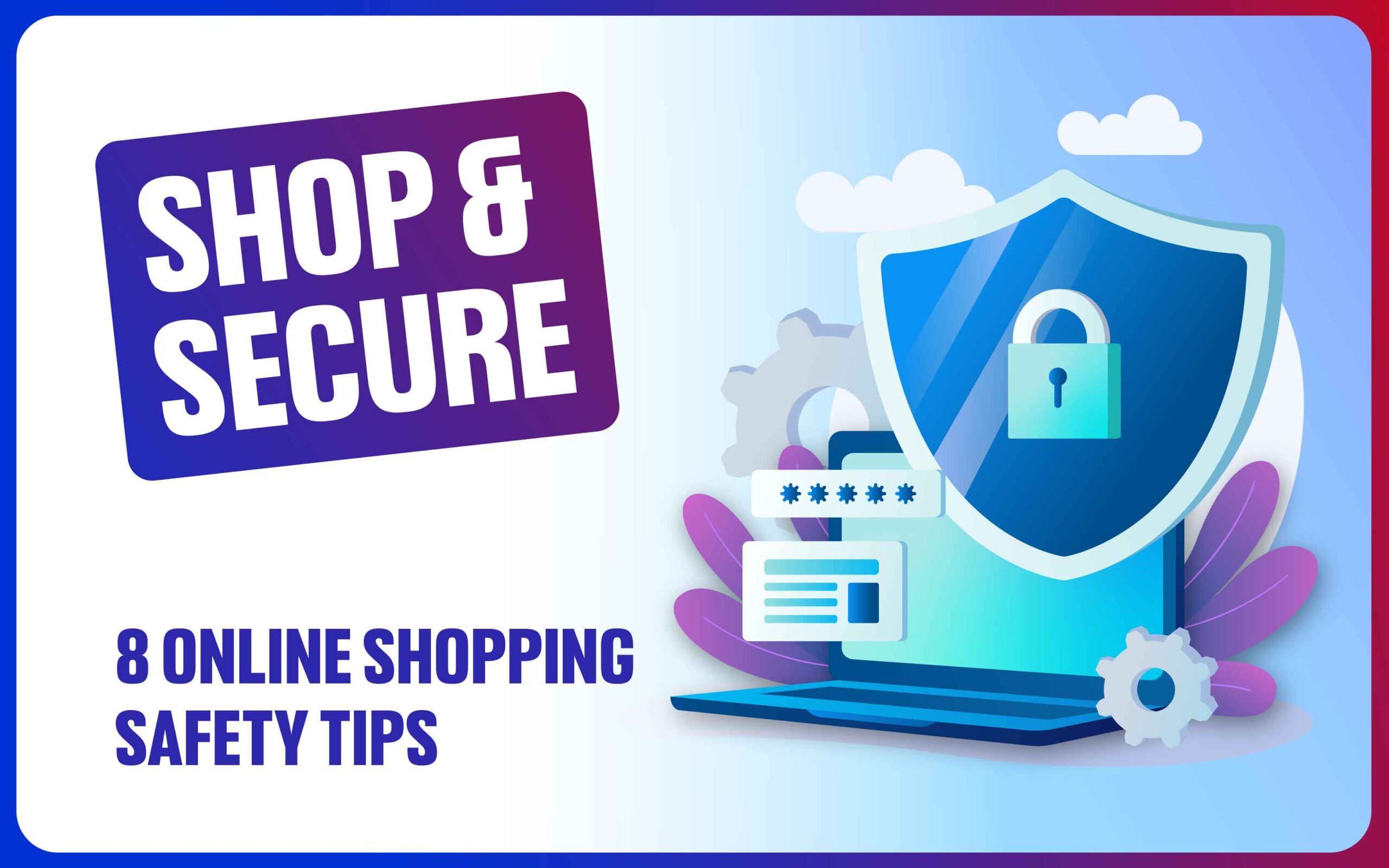Table of Contents
If you’re shopping online, you’re susceptible to many cyber threats that would want to dupe you into investing your money in a lost cause. Or it could be that they ask for your financial information and drain your account the moment they get in. Many such threats linger in the digital shopping arena, and it’s your responsibility to stay safe and take all the precautionary measures. Let’s see the top online shopping safety tips that can help you patch up your digital vulnerabilities and add to a safe online shopping experience.
If it’s not SSL encrypted, it’s not the website you want
If you’re on a website to shop and it looks a bit suspicious, don’t ignore your instincts. That’s because you’re used to shopping on legitimate websites, so if this one seems suspicious, something is wrong.
In that case, check for the lock icon at the beginning of your address bar. The lock implies that the site is SSL (secure sockets layer) encrypted and is secure to browse and shop from.
If it’s too good to be true, it probably is
Have you come across an advertisement on Facebook or Instagram that offers incredibly low prices or enticing freebies? The Federal Trade Commission (FTC) of the United States reports that in the last year, the number of reports of money lost to social media scams has more than tripled.
Always keep in mind that if an offer appears too good to be true, it most likely is. The FBI discovered that social media promoted a large number of the websites at the heart of its most recent wave of complaints.
Before making a purchase, compare prices to ensure online shopping safety. A bogus website designed to obtain your personal information or steal your money may be the cause of unusually low prices.
Only shop on websites you trust
Malicious actors can manipulate the search results to mislead you or even introduce malware into your device. Considering that everyone is aware that Amazon.com sells anything and everything, a good deal simply is not worth the risk.
Similarly, virtually all of the big-box retailers, including Target, Best Buy, and Home Depot, have an online presence.
Old-school tricks to watch out for include misspellings and sites that use a different top-level domain (.net instead of.com, for instance). Yes, these websites may present sales as appealing, but that is just a ruse to get your personal information.
Use strong password
This piece of advice might sound repetitive, but that is because it is very crucial. Your best defense against unauthorized access to your data is a strong, one-of-a-kind password.
Give your passwords a little variation if you use the same one for several websites and ensure online shopping safety. If you want to be almost impenetrable to hackers, use a password manager to help you create and remember the kinds of long, complex passwords that are too difficult for them to figure out.
Use a reliable VPN
Consumers should be advised when shopping online, especially on public Wi-Fi, it is safer to use a Virtual Private Network (VPN). A VPN protects your connection which makes it hard for hackers to pull off a nasty trick of eavesdropping on your connection. Norton Antivirus and VPN provide one of the most reliable online shopping experiences.
This is most relevant when typing your account Details such as your credit card details on the website. There are a lot of good VPN providers out there and many of them have relatively low prices for the service thus it could help to secure transactions online.
Use a credit card or payment service
As for the payment methods during an online purchase, it is better to use a credit card or a reliable payment system, for example, PayPal. When it comes to online shopping safety, fraud protection is slightly different when it comes to credit cards as compared to debit cards.
If fraud occurs and someone makes charges without the proprietor’s consent, credit card companies will recover the amount and launch an inquiry. Payment services provide an extra layer of protection by processing transactions between your bank and the merchant.
Skip optional fields
Do not fill in the online forms with unnecessary data. Numerous online resources are becoming skeptical and asking for extra information that is not necessary for the purchase.
This way, you avoid filling in fields that could present personal data to the website owner, reducing the risk of exposure if hackers target the website. It is always vital to check the form to only enter the relevant and necessary information.
Do not click on email links
Do not trust messages that appear as unbelievable offers or warnings regarding the users’ accounts in a particular store. These could be phishing attacks aimed at impersonating you and stealing from you.
Do not follow links directly to the retailer’s site through email; rather, manually enter the URL into the browser. It assists you in not being conned/ and also guarantees that you are using the right link to the intended site.
Conclusion
Online shopping safety is now a complex issue due to strings of risks that come with the shopping point and thus one must therefore be very keen when using this point of sale. As the above-mentioned guidelines have highlighted, namely, using a VPN, paying with a credit card, avoiding filling in extra fields, and clicking on suspicious links, one can minimize the chance of becoming prey to a cyber threat. Remember these tips to ensure that you embark on secure and easy-to-engaged shopping over the internet.
FAQs
How can I ensure a website is secure?
Make sure there is a lock icon near the website address and the web address should begin with https, indicating that the site is SSL encrypted.
Should I use Norton Antivirus for online shopping?
Yes, Norton antivirus is capable of protecting against the different malware and it can also protect against phishing and thus give you added security while shopping online.
Are deals that seem too good to be true safe?
No, usually if the deal looks too good to be true, it is a rip-off. Users should always compare prices with known sites because it can make them save large amounts of money.



